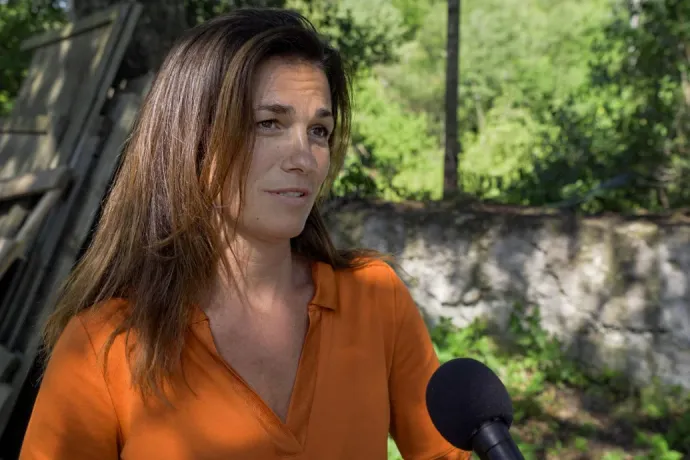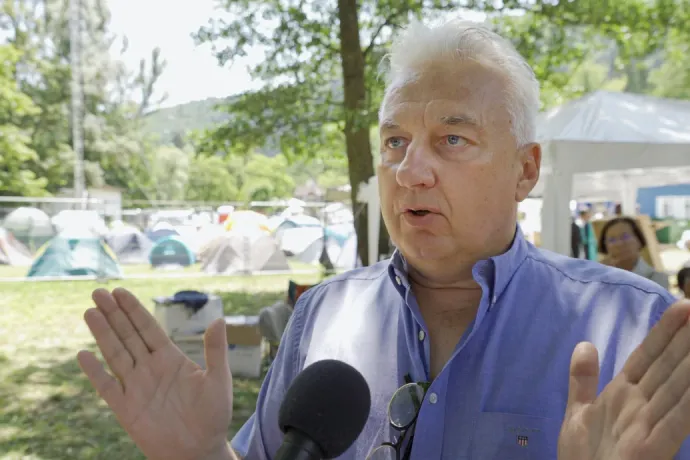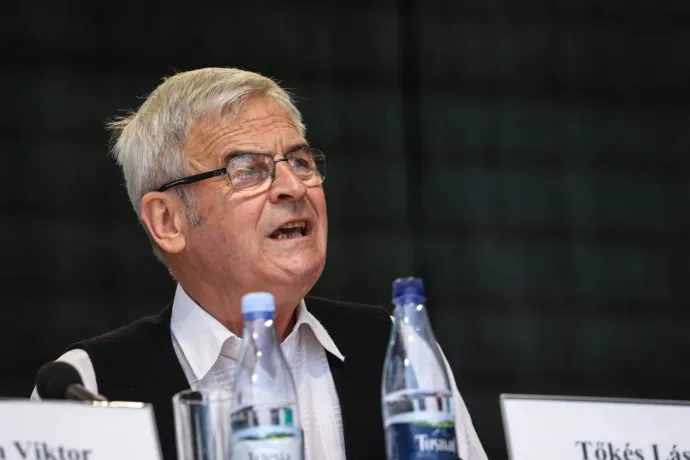The Bálványos Free Summer University and Student Camp (more commonly known as Tusványos) is a large-scale intellectual workshop of the Carpathian Basin, held each July in Transylvania, with tens of thousands of Hungarians from Romania, Hungary and other countries in the region in attendance.
When it was originally created, in 1990, the intention was to promote cross-border cooperation, Romanian-Hungarian dialogue and a cultured Hungarian-Hungarian political exchange. The event used to focus on a more universal approach to a particular discipline (literature, history, sociology, economics, political science, law), with the help of Hungarian, Romanian and Romanian-Hungarian speakers. Day-to-day political events did not use to be discussed.
In recent years the event has undeniably become a place where members of the Hungarian government and the intellectuals close to it share their ideas about the world and current affairs without substantive debate.
Telex spoke with several key speakers at the scene, and listened to all the speeches. Viktor Orbán also gave a speech, we summarized his main points in this article. Below, we take a look at what some of the other speakers had to say.
Judit Varga, Minister of Justice

On the gigantic corruption case involving her former deputy
Among others, we interviewed Judit Varga and asked her about the huge corruption case involving her former deputy, Pál Völner, and whether she had ordered an internal investigation.
She said that “This procedure is being conducted by the central investigative prosecutor's office, and I can't imagine a better investigation than that. Any ongoing internal investigations are completely irrelevant, because the most thorough investigation is the one that the prosecutor's office conducts in a situation like this.”
On making concessions towards the EU
We asked her whether she is able to identify with the proposals she submitted to Parliament last week which are aiming to curb corruption in compliance with the European Commission’s requests.
“These concessions are perfectly fine, I think they're appropriate, they're constitutionally sound solutions, so I can identify with them. But I think it is irrelevant what I can and cannot identify with. The most important thing for me is for Hungary to be able to reach an agreement, because we are in a very undignified situation here. We are still talking about the joint loan taken out during the Covid crisis...Quite simply, Europe has borrowed a lot of money and we will pass it on to the next generation.
I think that these professional steps are very forward-looking and encouraging because at last now we have an itemized list of tasks that can be interpreted. Because it is difficult to give a general answer when someone only says 'this is not good and not adequate'. It is difficult to make specific proposals about how and with what the negotiations can be moved forward.
This is now a much more constructive tone, much more positive, much more forward-looking, and we now have a one-month deadline in the conditionality procedure, where these commitments can of course be put on the table
– she answered.
We also wondered whether the Justice Minister thinks these concessions offered by the government mean a loss of face, given that in recent years, the government's communication has been all about not giving in to Brussels, sticking to our principles, etc.
Ms Varga responded by saying: “Well, let's look at what we're talking about. These are not principles, these are professional issues, and that's why they can be resolved. When it comes to differences of principle – regardless of what we may think about European cooperation – those have their own platforms.
This is not at all a question of apples and pears, so please excuse me for evading the answer this way. It is not that we have different principles or different attitudes, but the situation has developed in such a way that I think the general mood of recession in Europe is the real question that is constantly rumbling around: will Europe be able to prepare for the cold winter, will there be peace, and how long will all of this last?
This is also forcing all parties in the European Commission to resolve conflicts on unnecessary issues, where there is room for agreement.
So I can see a positive synergy, I can see that we have arrived at a professional update, and the one-month deadline under the conditionality regulation gives both sides a good, tight working pace.”
Zsolt Semjén, Deputy Prime Minister

On his political ambitions
“My ambition is that our alliance (with Fidesz), which is the most Christian democratic, and the politically most successful alliance in Europe would shape Hungarian society.
We are the most Christian democratic government in Europe, and we are the most successful political construct, having achieved a two-thirds majority for the fourth time."
On the anti-LGBTQ law and homosexuality
Mr Semjén once told Telex that the act of homosexuality is sin. We asked him to explain that.
“I am not the one saying that, God is. That's what the Scriptures say, that's what the Catholic Church says.
And in regards to a child's sexual education, my child's sexual education – that is only my responsibility. It is not for Brussels or the LGBTQ lobby to do, it is exclusively the parent's responsibility. And the prohibition of gender reassignment in that law is based on the simple biological fact that whether someone is male or female depends on their chromosome number. That is something that cannot be changed.”
László Tőkés

Mr Tőkés, an ethnic Hungarian pastor and politician from Romania was also among the speakers. He was a Member of the European Parliament (MEP) from 2007 to 2019 and served as Vice-President of the European Parliament from 2010 to 2012.
In his speech at Tusványos, among others, he said that “Even after 4-500 years, today Hungary still seems to be fighting alone to defend a Europe that is perishing. Who and what can our tiny country count on in the coming years? And what is Orbán's popular mandate worth in the so-called democratic Europe? – he asked.
The invasion of migrants flowing along the Balkan route is reminiscent of the Hunyadi era and the Battle of Nándorfehérvár (modern-day Belgrade in Serbia, where in 1456, Hungarian forces defeated the Ottoman Army and thus significantly delayed their advance in Europe) At that time, the advance of the Ottoman Empire was halted for more than half a century. At the time, the bells tolled to proclaim the victory of European Christianity. Now,
in an age of silenced bells, the solidarity of the European powers can hardly be counted on" Tőkés said.
If you would like to make sure not to miss quick, accurate and impartial news from Hungary, subscribe to the Telex English newsletter!
The translation of this article was made possible by our cooperation with the Heinrich Böll Foundation.